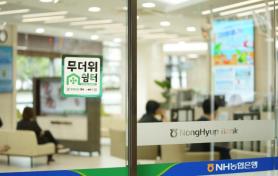
The murder of a South Korean student in Cambodia has sparked concerns over online scams. Chinese crime syndicates lured South Koreans with promises of high salaries, only to detain and force them into scams such as romance fraud and phishing.
While these activities occurred in Phnom Penh, the main hub was Sihanoukville, influenced by China's Belt and Road Initiative (BRI). The city, home to Cambodia's largest port, saw a surge in Chinese investment, transforming it into a hotspot for casinos and hotels. However, online casinos became a base for criminal activities, leading to a 2019 ban by the Cambodian government. The pandemic left empty buildings, which scam operations took over.
Sihanoukville exemplifies the dark legacy of BRI, leaving Cambodia with unfinished projects and rampant crime. Similar issues have surfaced in Indonesia, another BRI participant.
In Indonesia, BRI investments have poured into infrastructure like high-speed rail and ports. The Sulawesi industrial park, a joint venture for nickel processing, faced backlash over false claims of 40,000 Chinese workers, fueling distrust and anti-Chinese sentiment. This led to violent clashes in 2023 and 2025, with the government criticized for perceived bias.
Despite tensions, Indonesia avoided forming Chinese enclaves, unlike Cambodia. However, the Jakarta-Bandung high-speed rail project highlights BRI's challenges. Initiated in the early 2010s and accelerated under President Joko Widodo, the project saw China outbid Japan with a $5.5 billion offer, despite higher interest rates.
Construction faced delays due to land acquisition and the pandemic, exhausting Chinese loans. President Widodo intervened, shifting from a business-to-business model to government-backed guarantees, injecting billions more to complete the project by 2023.
Recently, the rail project has drawn scrutiny over its financial viability. Reports indicate significant losses, with 2024 deficits at 4.19 trillion rupiah ($360 million) and 2025's first half at 1.62 trillion rupiah ($140 million). Interest payments alone are estimated at 2 trillion rupiah ($170 million) annually, while revenue falls short.
Critics question the decision to choose China over Japan, pointing to potential corruption. Widodo defended the rail as a social investment, emphasizing environmental and regional benefits.
The government, under President Prabowo, seeks solutions, considering debt restructuring with China. The outcome could lead to political upheaval and corruption investigations.
The high-speed rail controversy underscores the debt trap risk associated with BRI. While Indonesia's debt situation is manageable, prolonged deficits could trap its railway company in debt, making the Jakarta-Bandung rail a cautionary tale of foreign-funded infrastructure projects.
Author's Background
* This article, published by Aju Business Daily, was translated by AI and edited by AJP.
Copyright ⓒ Aju Press All rights reserved.




